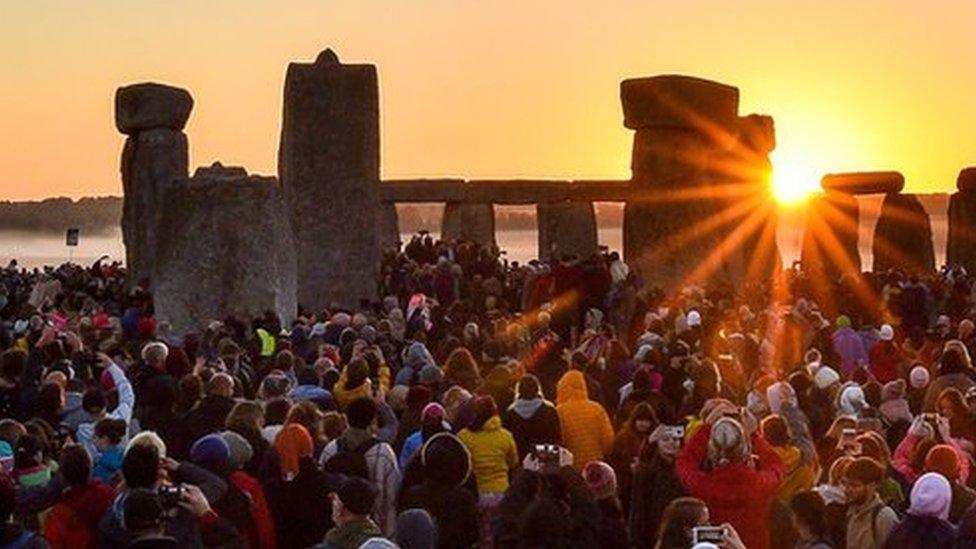Summer solstice: Hundreds attend Stonehenge despite advice
- Published
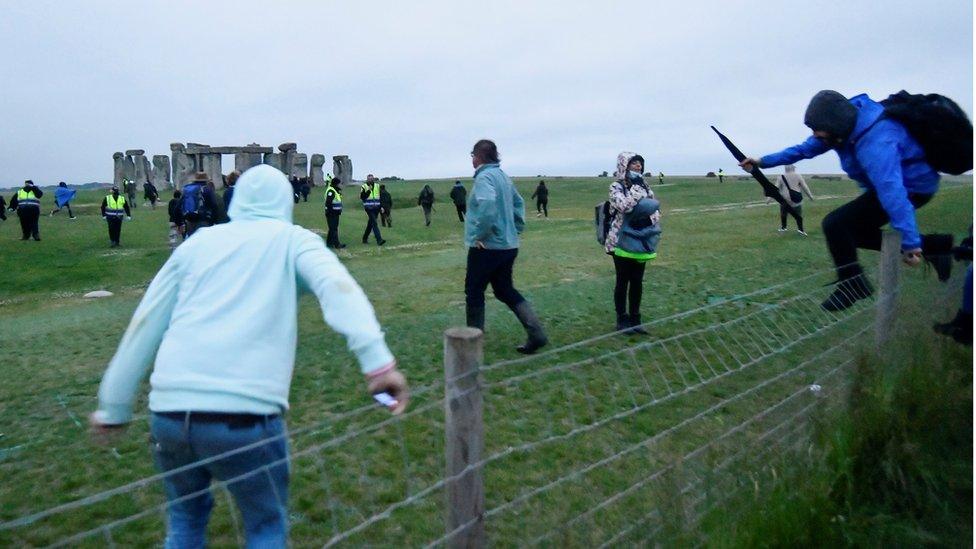
People were seen climbing over a fence to get into the ancient stone circle
Hundreds of people attended the summer solstice at Stonehenge despite official advice asking them not to travel to the site in line with Covid restrictions.
As a result English Heritage pulled a live feed of the sunrise at the neolithic monument in Wiltshire at 04:52 BST due to safety concerns.
People were seen climbing over a low fence to access the stones.
Wiltshire Police said the event was peaceful but added the number of people at nearby Avebury had caused issues.
More than 200,000 people from around the world tuned in to the live stream for the solstice but ended up watching pre-recorded footage of the stones until the feed returned at around 05:00 BST, showing largely cloudy skies.
Video from the scene showed about a hundred people inside the stone circle and a banner reading "Standing for Stonehenge".
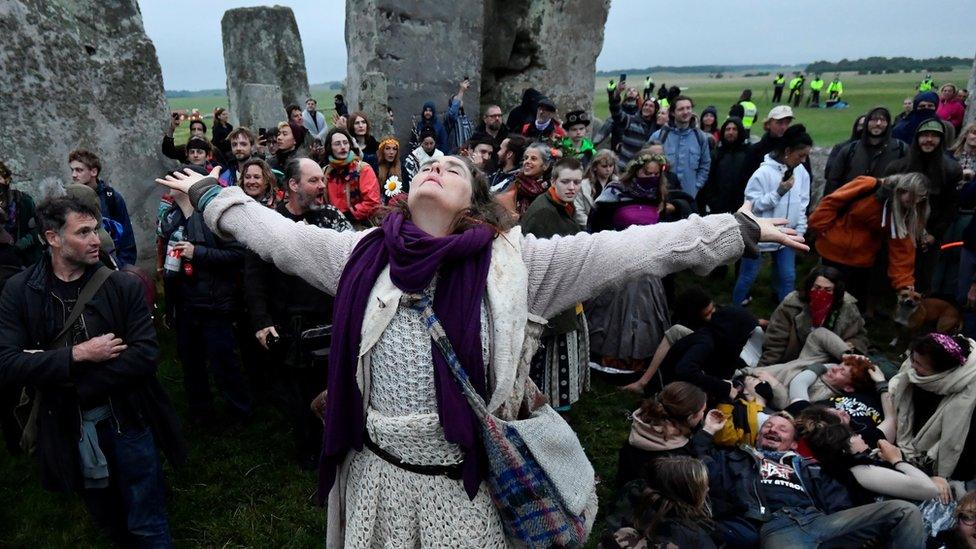
English Heritage had urged people to stay home and watch their live stream
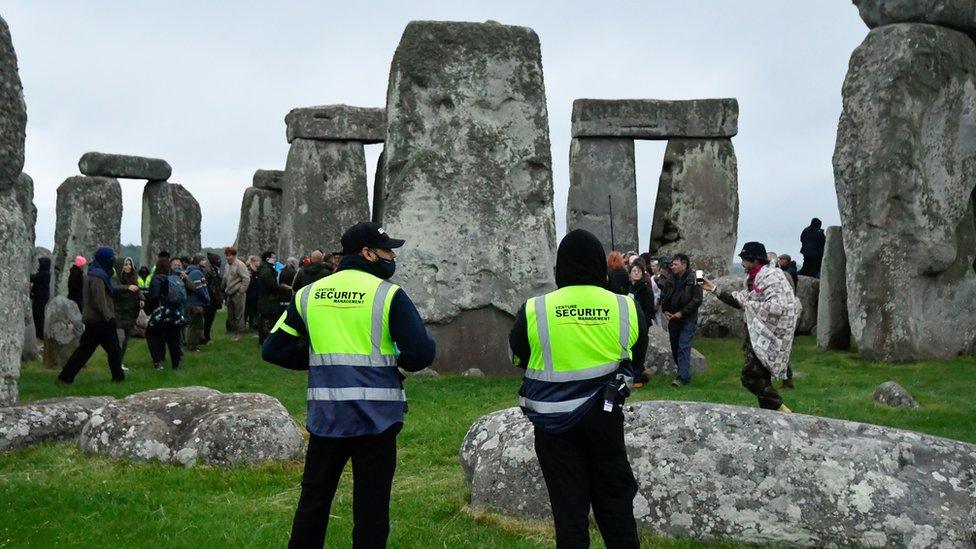
The stones were officially closed for the celebrations due to the delay of the easing of coronavirus restrictions
English Heritage had been preparing to welcome visitors in person until the government delayed the easing of covid restrictions into July.
It said the "difficult decision" to cancel planned celebrations was made following discussions with Wiltshire Council and Wiltshire Police.
It meant the organisation held a virtual event for the second consecutive year.
Apologising for the live stream outage, host Ed Shires said: "We have been disappointed that a number of people have chosen to disregard our request to not travel to the stones this morning and that is the reason why we haven't been able to bring you the pictures that we would have liked to have done.
"It is disappointing to see that happen but unfortunately in those kind of situations we have to put the safety of our staff members first and that's why we have had some interruption this morning."
A spokeswoman for English Heritage added: "The Covid-19 restrictions were extended for a reason and it was disappointing to see, during a pandemic, people act in a way that put themselves, our staff and the police at risk."

What is the summer solstice?
It is the longest day of the year, with the most hours of sunlight. The word solstice comes from the fact the sun appears to stand still - from the Latin words sol (sun) and sistere (to stand still).
The summer solstice always occurs between the 20th and 22nd June in the northern hemisphere, and during a leap year it always falls on the 20th.
This is because the calendar year does not match exactly the time it takes the Earth to orbit the Sun - the calendar is approximately a quarter of a day short, which is why we have leap years, to bring the calendar back in line with the Earth's orbit.
While the summer solstice is the day that has the most hours of sunlight, it can signal warmer weather is on the horizon because the UK's weather typically becomes hotter during July and August.

English Heritage did not elaborate on how the attendance of people at the site prevented them from showing a live feed of the sunrise.
Normally, more than 10,000 people would gather to watch the sun rise over the stones on the longest day of the year.
At nearby Avebury stone circle, about 24 miles (38km) from Stonehenge, police closed off an area near to the site when crowds began gathering on Sunday evening.
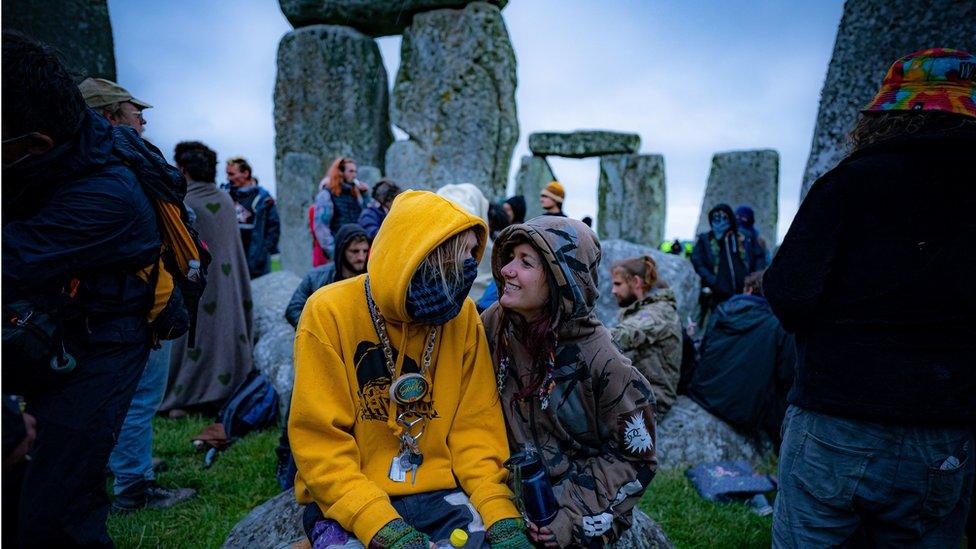
People ignored official advice not to travel to the site, but police said most were well behaved
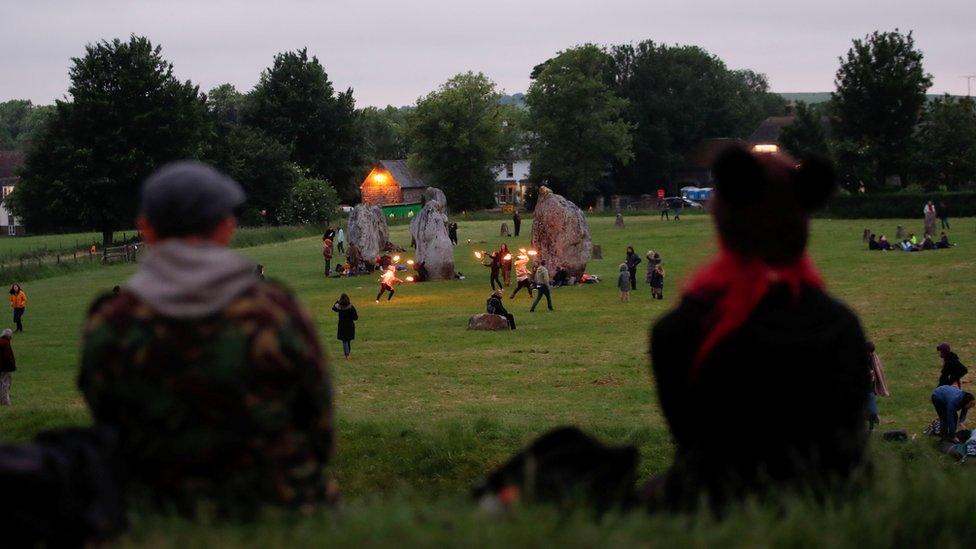
People also turned up at Avebury Stones, where police closed part of the nearby Ridgeway footpath to maintain public safety
Supt Dave Minty, from Wiltshire Police, said: "Most people have been well behaved.
"We have seen some build up in some areas around Avebury in particular, that we would have hoped to have avoided, but everything has been peaceful.
"It is just the numbers that have caused us some issues up on the Ridgeway."
He said a woman was arrested for being drunk and disorderly and had since been released.
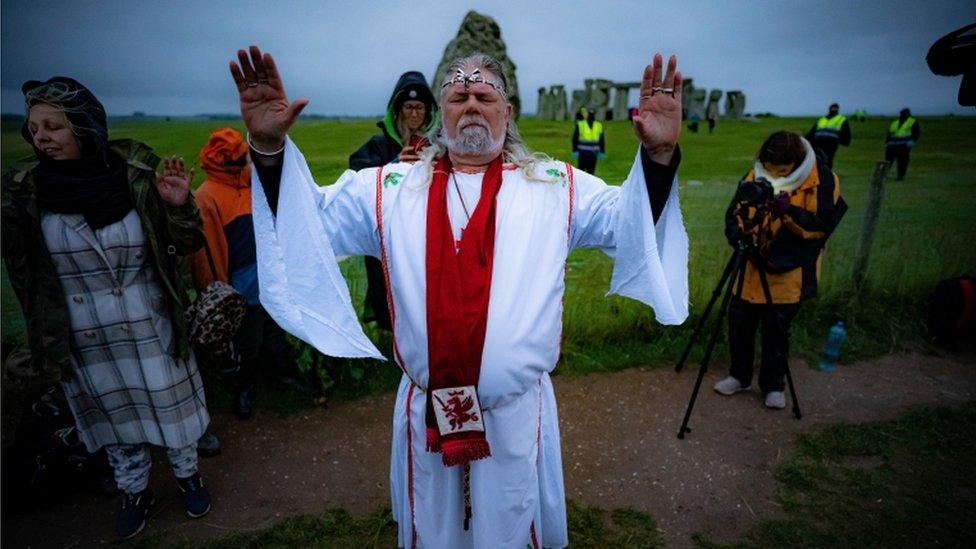
Leading druid King Arthur Pendragon performed a ritual during summer solstice at Stonehenge
Senior druid King Arthur Pendragon said it was unnecessary to completely close the sites.
"It was never going to be massive anyway," he said.
"If you think about it a lot of the people who come to the solstice fly in from America, and all around the world, that wasn't going to happen this year, so I don't know why they didn't just let us in.
"I'd rather have been in there... but as it goes we did what we could."

At the scene with BBC reporter Karen Gardner
Hundreds of cones had been placed on the roads closest to Stonehenge to prevent parking, but cars and vans were still squeezed into the few available slots.
At about 04:50 BST about 200 to 300 people had stepped over the low fence to be among the stones as the sun rose behind a bank of grey cloud.
It may have been the summer solstice, but it was as cold a morning as I can remember this year, there was a real chill in the air.
I drove the short distance to the Avebury stones where a couple of hundred people - many who had camped out or slept in their vehicles overnight - also ignored the pleas from the authorities not to move among the monuments.
It all seemed very good-natured, with the security guards and police at both sites fairly relaxed.

Follow BBC West on Facebook, external, Twitter, external and Instagram, external. Send your story ideas to: bristol@bbc.co.uk , external
Related topics
- Published21 June 2021
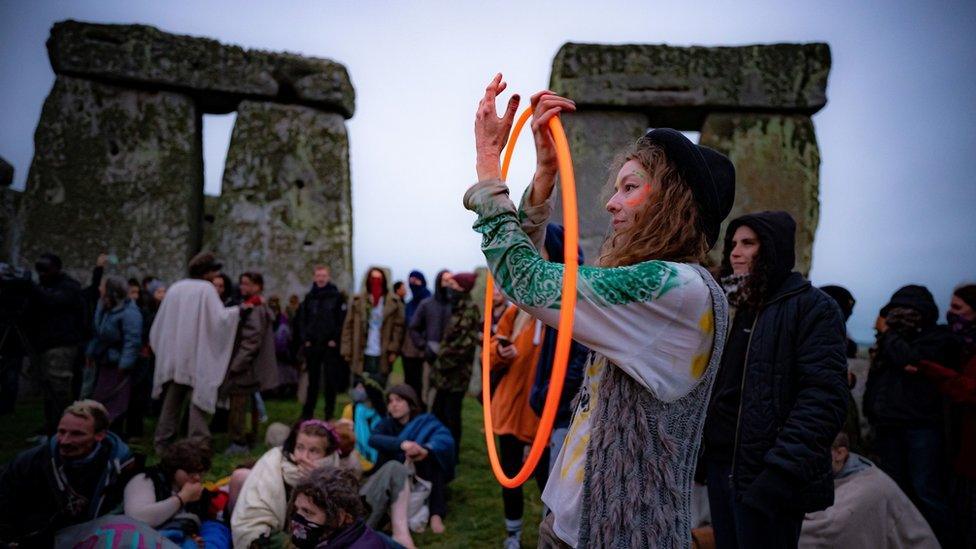
- Published20 June 2021
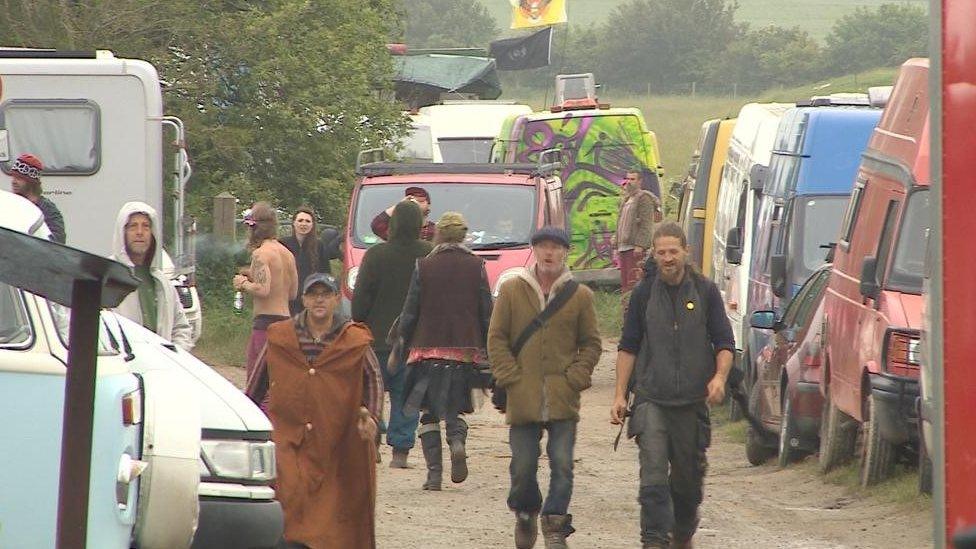
- Published16 June 2021
